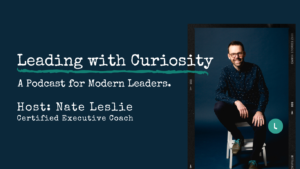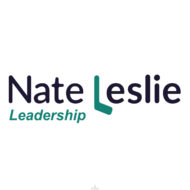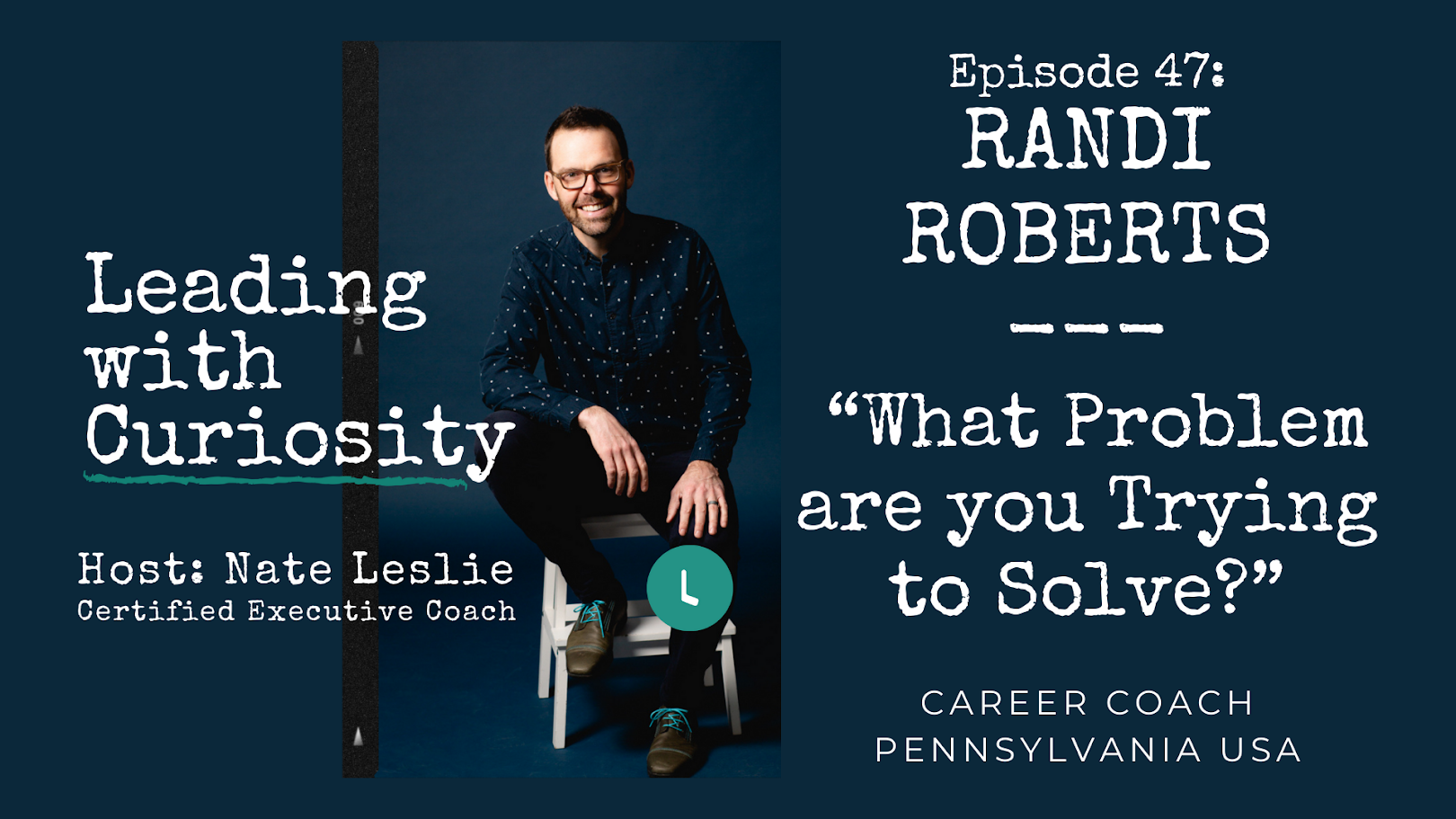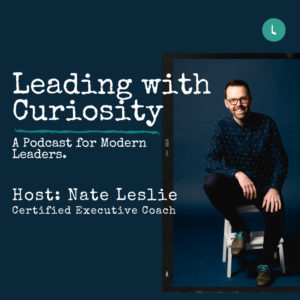@12:50 – Nate Leslie (nateleslie.ca)
Randi Roberts, welcome to Leading with Curiosity.
@13:00 – Randi Roberts (randirobertscoaching.com)
Thanks so much, Nate. I’m really glad to be here today.
@13:04 – Nate Leslie (nateleslie.ca)
You’re a fellow ICF accredited coach, 30 years in the corporate world, hosted the podcast, the fulfilling career, Happy Life, focused now largely on career transition of professionals.
How did you end up in this work?
@13:24 – Randi Roberts (randirobertscoaching.com)
Yeah, you know, it was not by plan. It was by happy. I don’t want to say accident, but happy discovering, I guess.
first career, you mentioned I was 30 years in the corporate world. I was in pharmaceuticals, and I absolutely loved it.
one of the reasons that I loved it so much was I have always known about myself that I need to do some good while I’m doing well.
Like, I just need my work to make a difference to other people. And in pharmaceuticals, I loved that because the end result of what those
Companies do. Makes people healthier, extends their lives, good patient outcomes, all those things. While we’re making a lot of money for shareholders, that to me is a very stimulating mix.
And so that’s why pharma felt like home for so long. I loved it. And I was one of those crazy people that I was as excited on Monday morning as I was on Friday afternoon.
I just genuinely loved my work. Until Wednesday, I didn’t. And it took me a while to figure out what was different, what was it that I needed to change to sort of get that fire back.
And I had always loved mentoring people, had mentored a ton of people in my career. What I realized was I had had some executive coaches at very pivotal points in my career.
Either when I was trying to overcome some obstacles. Kote’s are very helpful then and at a time when I had taken on a very big new level of responsibility and was struggling even internally to feel that I was as ready as I needed to be to take it on.
So coaches helped me so much in those phases. really felt like that was a place where I could add a lot of value.
And I could run my own business and be a little bit more in control of my own schedule and destiny at this point in my career.
And I mentioned I needed to do some good while I was doing well. the good that I do is I help other people achieve their goals.
And my business is very successful and it’s just every bit, it fits me every bit as well and energizes me just as much as my first career did.
So… I’m like a very lucky person.
@16:03 – Nate Leslie (nateleslie.ca)
We can relate here on this show to the listeners episode 44, which this being episode 47, just a few episodes ago focused the entire time on doing, in your words, doing good while doing well.
there’s some values alignment there as well. you just touched on something that you were in that role of mentor.
And that. You realize that that role of coach is there’s some overlap, but there’s also some unique aspects.
@16:35 – Randi Roberts (randirobertscoaching.com)
What can you add to that this conversation? Yeah, I think that and I think that’s really important because those of us that are fortunate have had mentors.
They might be former bosses or just people that we’ve connected with. And I’ve mentored a bunch people and have had mentors in my career as a mentor.
And I was very upfront. I’m with this about with everyone that. I wanted to be as much there for them as I could in terms of giving advice, helping them seek out opportunities and pursue them and that kind of thing.
But one big difference is, as a mentor, I had my own agenda, meaning if they were somebody that I was impressed with, I might be trying to steer them into my own organization.
Now, only if it was also good for them. But, I I couldn’t say I didn’t have my own agenda.
As a coach, it’s very different. I have no, you know, talking about career transition, I see a lot of clients that are in a position to make a choice between two different opportunities.
And as their coach, I have no skin in the game, which choice they make. My focus is helping them make the choice that’s right for them.
So, if that makes sense, I think a coach is a little more, more. I don’t know, pure, unbiased, whatever you want to call it, still super helpful and the really lucky people have both mentors and coaches.
@18:09 – Nate Leslie (nateleslie.ca)
How did your relationship change with giving advice once you started your coach training and you saw that that’s not what we do?
@18:18 – Randi Roberts (randirobertscoaching.com)
That was a skill that I needed to learn because, and that’s one of the reasons that I went for coach certification because there are some coaches that offer a lot of value that never, that use their own experience.
It never went through certification. This is one of the reasons that I pursued the certification was because there are ways to share your experience and your knowledge.
And sometimes, look, people hire me with 30 years of business experience for my experience. So I’m not serving them if I don’t share it, but you have to do it through a coaching lens and it’s very much, it might be asking their permission, do you want me to share a perspective?
Would you like to hear what other clients have done? Because sometimes that’s very helpful for them and sometimes it’s not.
So it’s a matter of learning the technique so that you stay in the coaching container, if you will, while still offering experience and wisdom and that kind of thing.
@19:20 – Nate Leslie (nateleslie.ca)
How do you approach it, Nate? Yeah, you really cut my attention there because if we’re unattached from what they should do, which is the more pure approach, I’m just thinking right now, any leader listening can already take this little nugget from this conversation because when we feel like we have something useful to share as a leader and we share it with that up-and-coming rising high potential person in our organization, when we can let it land for them however they need it to.
In other words, oh yes, I’d love to hear more or no, that doesn’t really sound useful. The coach knows you go there.
Someone hell bent on giving advice is going to push through that agenda that you mentioned. how I navigate that as a coach, similar to you, the word offering comes to mind right now.
Sometimes there’s things that we know that might be useful. And sharing it as an invitation. There’s something I could share or we can go with wherever your mind is taking it, which one seems more useful?
coaching is like the biggest choose your own adventure, right? The odd time they’re presented with a choice. maybe and also make sure there’s that third choice of or something else.
And any leader listening can immediately adapt. And let go, gosh, this is so many episodes combined already. Episode 7 is about mentor is a gift word.
If we’re lucky, a few people The in our lives call them a mentor. Another one is, you have to be an idiot to want to be a guru.
Some people feel compelled to need to give advice, but one we can let go of feeling so useful that it’s our advice and wisdom that is going to make the difference and put things out there for people to accept, reject, twist, make their own.
That’s where the real power and the neuroscience of the whole thing of coaching happens.
@21:28 – Randi Roberts (randirobertscoaching.com)
I love what you’re saying. think that’s, you know, self-awareness is at the heart of success in so many areas.
certainly as a coach, because you may have tremendous experience and wisdom to share. And if what’s important to you is to share it, then be a speaker, be a consultant.
But that’s not necessarily a coaching approach. Doesn’t mean that’s not appropriate. you have to sort of know what what’s You’re calling your…
What your lane is, what work you’re choosing to do. And lucky people have almost like a board of directors, right?
They may have mentors, they have a coach, they may have a boss, they may have colleagues, all of which give a little bit different perspective sometimes.
@22:17 – Nate Leslie (nateleslie.ca)
But a coach has no agenda. So let’s take what we’re sharing right now and move it into the work that you’re doing in your transition.
So someone comes to you, you’ve just used the word having self-awareness, you’ve mentioned your own values, someone comes to you and they’re, hmm, I’ve been doing this for a long time and I just don’t love it anymore.
@22:39 – Randi Roberts (randirobertscoaching.com)
What does it look like from there when someone’s working with you? Yeah, I mean, I can relate to that from my own experience and I’ve worked with many clients through this.
I think what’s really important is to get to the root of what’s causing that, which, Sometimes it’s quite easy to do and sometimes it’s a lot harder, but you know the way I look at it is if you don’t know the problem you’re trying to solve, you may move somewhere else and take the problem with you.
And you may repeat patterns and that kind of thing. So if you can get to the bottom of what’s working for you and what’s not working for you in your current situation, then you know sometimes you can’t.
You solve for it right where you are. And you know for people for whom change is hard or there’s financial reasons to stay where you are, like if you could solve your problem and make a few shifts and find what you need right where you are, that can be a great solution.
Likewise, if the solution for you is making a change leaving your company, leaving your industry or your profession, whatever that is, it’s still important to know what’s working for you and what it So that you’re looking for the right things.
And there’s some specific tools you can use. I think it’s almost the philosophy. It’s like, at first, go slow to go fast.
Don’t make a change on a whim. Don’t make an emotional decision. Take the time to do that inner work and figure out what problem you’re trying to solve and what opportunities you’re trying to seek.
then you can make the change that’s going to be lasting.
@24:24 – Nate Leslie (nateleslie.ca)
Listeners know I always find the title of the episode at some point and I feel like in these last two minutes here there’s there’s gold.
There’s a title in here that go slow to go faster. Getting to the root of that problem. What are you?
What is the problem you’re trying to solve for? Can you put that in real practical terms as an example of a client that you’ve worked with where they’ve been.
Let’s explore first where they’ve actually found that root problem is something that’s That’s they can change and they stay and then maybe after we’ll explore where the current reality just isn’t the right one and a new opportunity.
@25:12 – Randi Roberts (randirobertscoaching.com)
I can think of a client that I’ve worked with for a couple of years and she was working as a principal in a consulting firm and was struggling a little bit with adapting to the culture there and she wasn’t quite sure if it was the right fit for her.
And what we had to do was tease out a couple of different dynamics because there’s always layers to this.
There was, is it the nature of the work? So being a consultant is very different than a lot of other jobs.
You’re dealing with internal issues and politics. You’re dealing with the content that you’re focused on and you’re dealing with all of the client issues and bringing in new business and things like that.
He had to take a look at the nature of the consulting world. Was that type of work right for her?
We had to look at the values and the dynamics and the environment of her company. And we had to look at the content and was she in the right place.
So we sort of teased out each of those things. And what she realized was there were some things that weren’t working for her within her own company.
And when she did some work and she realized what those things were, and then when she knew what the issue was, she had to work through.
Did she want to invest in trying to fix those things where she was? Or did she want to look outside and sort of know what might be a better fit for her at that point?
And it was interesting because what she decided was, and it’s very true to who I know her to be, she wanted to do everything she could to see if she could make it work where she was, because she liked the values of the
She had realized some things that didn’t fit for her. She engaged with a couple of partners on it, and that opened an honest, courageous conversation that she had with them really unlocked some things.
She found new ways to offer her talents to the company, and she was able to engage with the partners in different ways.
And it really really unlocked lot of things and unlocked or opened a door feels like the right thing to call this because once she did that work and once she took that courageous action, things changed very quickly.
It was wonderful to see and I was honored to support her in that work.
@27:50 – Nate Leslie (nateleslie.ca)
I expected you to say something shifted in the way they’re viewing their work, but what you just described and not to oversimplify it is she came to you with this question like should I stay or should.
@28:00 – Randi Roberts (randirobertscoaching.com)
They go.
@28:00 – Nate Leslie (nateleslie.ca)
And what resulted through coaching of an unbiased, non-agenda-based third party was shifting the culture and shifting her relationship with the other partners in the firm for the better, which has massive implications if you consider the alternative, which was she had to start over somewhere, don’t know what’s starting over, right?
always take our experience with us, but starting new somewhere else. Those are two very different outcomes.
@28:28 – Randi Roberts (randirobertscoaching.com)
Yeah. And truthfully, I think either one of them could have worked for her. Her hope was to stay, but she approached this, and I think back to my career in several pivotal moments that I’ve had too, she approached this from a, this is what’s true for me.
Let’s see if we can find a way to make this work. And if not, it’s still what was true for her and what she needed long term.
So if she couldn’t make it work here, she would have would to leave just to be true to herself.
and make it work somewhere else. So in a way there was no bad outcome of her taking that courageous action.
But it worked out the way she hoped it would. And again, I had no agenda which worked out for her.
My job was to help support her to make the right decision. But in a way when I stepped back from it, it was very gratifying to see that she could do that for herself.
@29:27 – Nate Leslie (nateleslie.ca)
What role did you possibly play leading question in preparing her for some of those conversations, for example, her partners?
@29:36 – Randi Roberts (randirobertscoaching.com)
Yeah, it was talking through what did she want to have happen in that situation? And how could she best set herself up for that success?
What could she control? She couldn’t control the other. But what were the things she could control? How could she show up?
What would her focus be to best set her up for the desired outcome? So it was a lot of conversations like that which are very powerful because what I find neat is my clients are so wise.
And sometimes they don’t give them even very accomplished leaders. Don’t recognize it in themselves. Don’t give them credit for all the things that they can make happen.
And we get too much in our own heads. And just talking it through with someone who’s who can sometimes just do some active listening sometimes one of the things that I think I’m really good at is seeing patterns and connecting the dots and reflecting some of that back.
That’s something we can’t do for ourselves. So working with someone else can just unlock the magic that we all have.
I’m a coach. I have a coach. I will always have a coach because I need that too. And so I think in some ways it feels like like
Magic and in other ways it’s so simple. It’s just the right kind of connection with another person.
@31:07 – Nate Leslie (nateleslie.ca)
So this leader comes to you with this decision to make this position in their life and when we picture that person, the other people that she could have talked to about this, the word agenda has come back to my right.
Partners have their own agenda, like spouses, friends have an invested interest in the outcome and you can show up as that independent party to help her think through all of this.
@31:39 – Randi Roberts (randirobertscoaching.com)
Exactly. you know, each of those people that you mentioned are the ones that I think of as sitting on our board of directors, right?
And there are times when like I think of some very close friends that I have that are my or my sister who I’m very close to, they are my cheerleaders.
And if I want to. I call somebody and I want to hear how wonderful I am. They’re the ones I call.
But if what I need to hear is, you know, you’re a little full of yourself at the moment and you may not be seeing this quite right.
They wouldn’t necessarily be the ones that I call. You know, whereas a coach or someone else can hold up a mirror a little bit, sometimes give tough love, but always the love, always the support and sort of reflect what they’re seeing and hearing.
So, in that board of directors analogy, it’s a matter of knowing what you may need and calling on the right person for the right thing.
@32:36 – Nate Leslie (nateleslie.ca)
Yeah. Yeah. role do those people play at? What point in your life? What point in your day? Here we…
I said I wanted to also explore a great client success where leaving was the right move.
@32:51 – Randi Roberts (randirobertscoaching.com)
Want to come to mind? Yes, absolutely. So, it’s another client that I’ve been working with for couple years and I’m still working with.
And she… She had been with the corporation for a long time and done very, very well, but was no longer challenged.
And another opportunity came to her that seemed like it offered everything she wanted. There were big financial benefits. The challenge was there.
This happened to be in the pharma world because a lot of my network is there. She loved the therapeutic area they were working on.
She really felt like they were addressing an important unmet need. Like it met all of the criteria. So she joined them and it was great for a while.
And then some things changed there where it no longer worked for it. There were clashes with her personal values.
And so she was faced with a situation where it checked off so many of the boxes and it was such a painful decision for her to think about leaving.
But there were certain areas in her life that needed to be served that this couldn’t pop. So we worked through that process and she did decide to leave and she took another opportunity.
It was a very, very hard decision.
@34:13 – Nate Leslie (nateleslie.ca)
What can you share about these non-negotiables, these things that matter, connecting people’s situation to their core values?
@34:24 – Randi Roberts (randirobertscoaching.com)
It is such an important point. It’s such an important point because when I first became an executive coach, I didn’t think I was going to spend so much time talking about values with clients.
I don’t know why I didn’t think it. But with many most of my clients, we start with a values assessment because, first of all, it’s a great way for me to get to know them, but it’s a great way for them to dial into themselves and take a look.
Our core values don’t usually change, but the priority of them may change and certain things may shift up at different levels.
The It can explain why certain things work and why certain things don’t work and it can highlight for you What issues you may need to solve for so for example with this particular situation that I’m talking about She had Her family she still has children at home Her family is the non-negotiable for her She knows she she supports her family.
knows that she has to work both Financially, but also just for herself but she also knows that the time we have with our children at home is limited and In the grand scheme of things there may be nothing more important than than what you do during those years what the examples you show your children and and all of that and There were certain things that were not serving her family
That were absolutely non-negotiables for her. And those things make themselves known to you in your life. They cause pain or discomfort or dissatisfaction.
There’s almost no way to ignore those things. Especially once you become aware of them. You can’t unknow that you’re not doing the right thing in your mind, in your assessment.
You can’t unknow that you’re not doing the right thing by your kids.
@36:27 – Nate Leslie (nateleslie.ca)
They’re not going to say our values make themselves known to us.
@36:32 – Randi Roberts (randirobertscoaching.com)
Where there’s a value, well yes, but really what I meant was where there’s a value conflict. Where there’s a mismatch or we’re not paying enough attention to something that is a really important value for us.
That if you are at all in tune with yourself and at all self-aware, that will make itself known to you.
@36:54 – Nate Leslie (nateleslie.ca)
Yeah, yeah, I really like it.
@36:56 – Randi Roberts (randirobertscoaching.com)
May I borrow that? Please, it’s my pleasure to share it with you.
@37:00 – Nate Leslie (nateleslie.ca)
Thank you. Great. Thank you much for my time and these episodes. How often do they come back? Whether it’s with a highly self-aware leader or a coach, someone in the leadership development space, it always comes back to our non-negotiables.
You said you start with a values assessment. that something that you use one? You have probably a number of different ways to explore core values, but do you have a go-to way that you might want to share?
@37:26 – Randi Roberts (randirobertscoaching.com)
again, something else I can steal? I don’t know if you’re going to want to steal it, but I’m happy to share it with you.
Basically, I first started to do it, I used… There were two different assessments I used online. I don’t really remember the names, but it was one of those…
You get a link, you go on, you answer bunch questions, you get this pretty-looking report. what I found was…
was good. But what I found was using my own… I’ve developed this bag of tricks based on needs from clients.
I use my own simple spread… I have a way of asking the questions and analyzing. They do it as homework and then they send it back to me and I do an analysis on gaps and things like that.
It provides a really nice conversation. don’t find that the official online versions that I have to pay for and then pass the cost onto my client.
I don’t feel that that adds any more value. I do my own private method right now, which provides the kind of conversation that we need.
@38:28 – Nate Leslie (nateleslie.ca)
Yeah, yeah. I like that. This idea that they are non-negotiables of what is most important to us, what we stand for, we can find that core essence through questions and coaching and meaningful conversations.
@38:44 – Randi Roberts (randirobertscoaching.com)
Yes, I have found that.
@38:46 – Nate Leslie (nateleslie.ca)
Yeah, me too. you. Speaking of resources, you have some for listeners. think what would you like to share about what you have on offer for
@39:00 – Randi Roberts (randirobertscoaching.com)
I have two different things that I’m happy to offer up. They’re free. They’re available on my website, which is Randi Roberts Coaching.
It’s r-i-n-d-i-robertscoaching.com. And if you go to the Fulfilling Career Happy Life section, which is the name of my own podcast and YouTube channel, there’s two tools available.
One is a career satisfaction assessment, which in the situation where people developed this because so many people would come to me and I’m just not as happy as I used to be.
The stuff that used to excite me is now making me exhausted. So it gives a good starting place to try and figure out what’s wrong, what’s working and what isn’t, and which may give you a stepping off point to either talk to a coach or take it on yourself in different ways.
So that tool is available there, and I’d be thrilled for people to access that if it’s helpful. And then the other tool that I have available is what I’m calling the right type.
I’m Guide, which is essentially a curated list of different podcast episodes that I’ve done that deal with how do you know if it’s the right time to?
How do you know if it’s the right time to look for another job? How do you know if it’s the right time to think about retiring?
Like those kinds of things. So I was pretty impressed with you being able to pull up episode 44 and episode 7 and what they did.
I’m not that facile with my different episodes, but I am proud of them. so I offer up sort of a readers digest condensed version guide that’s also available on the website.
@40:39 – Nate Leslie (nateleslie.ca)
I love it. I’m in the process of writing my first book and it’s gathering these themes from different episodes and core values.
Of course, I’m at the age of 10, 14, So it’s a little bit top of my end right now, but I appreciate that.
Now, I think we’re really happy to share that in the show notes as well. They’ll be on Spotify, they’ll be a question there for you based on what you’ve been hearing in this episode.
Free Leader Self Assessment from me, Career Satisfaction Surveys, and the Right Time Guide from our guest, Randi Roberts. It’s been such a pleasure exploring not only the work that you do with professionals in those moments when they need you most, but how coaching just layers through all of this journey for people.
That’s the fulfilling career, happy life, podcast, and Randi Roberts coaching. It’s such a pleasure to speak with you and all the best to you.
@41:38 – Randi Roberts (randirobertscoaching.com)
Thank you, Nate. really enjoyed being here with you today. Thank you.




